Secure your place at the Digiday Media Buying Summit in Nashville, March 2-4

Google’s navigation app Waze helps drivers get to their destinations quickly. Simultaneously, it sells ads that try to convince drivers to alter their routes. Branded pins, for example, could highlight a nearby restaurant or retail store.
Waze recently partnered with WPP to help grow its ad business. “The goal is to deliver a better experience for drivers and a better experience for brands — more contextual, better targeted — than what is available today through traditional mediums such as radio and billboards,” said Sanja Partalo, svp, corporate strategy and digital development at WPP.
Digiday obtained a recent pitch deck by a sales representative at Waze from a source at a U.S. ad agency. The deck describes Waze’s audience in the U.S. — 29 million monthly active users who spend 10.5 hours per month on the app, on average — and shares examples of previous Waze campaigns from brands such as Outback Steakhouse, McDonald’s and 99 Cents Only Stores.
Ad buyers, with clients in retail and food, said they see Waze as an effective and inexpensive option. Ads on Waze start at $2 per day for a business advertising one location, according to a pitch deck Digiday obtained last May, and are sold at cost-per-impression. But buyers recently have asked about more personalization and targeting options. Google and Waze don’t share data with each other, so advertisers cannot target Waze users based on their Google data — at least for now.
Google doesn’t break out how much revenue Waze makes in its earnings, but the audience is evidently much smaller than Google overall. Waze has 115 million monthly active users in total, as of the WPP partnership announcement in February.
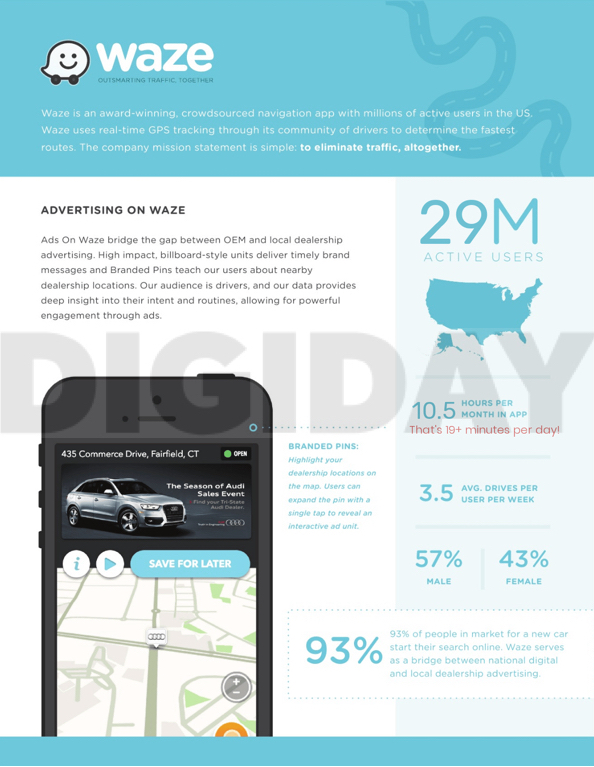
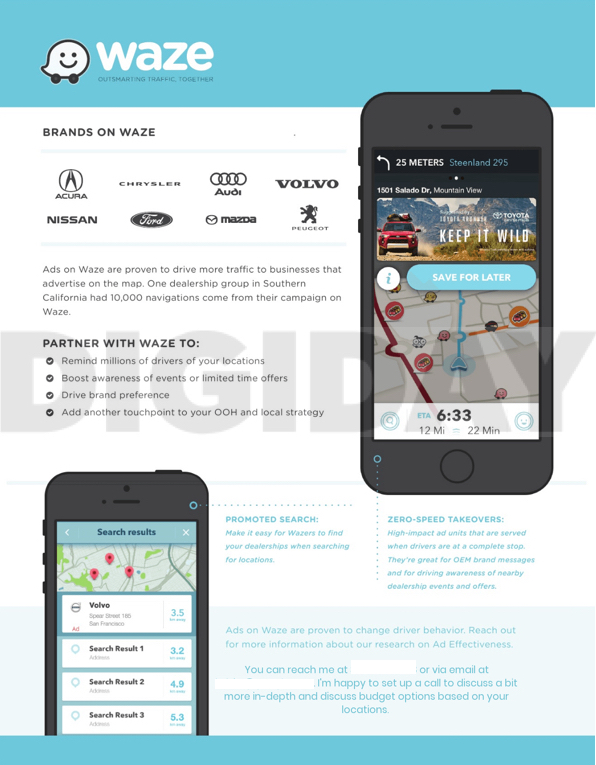
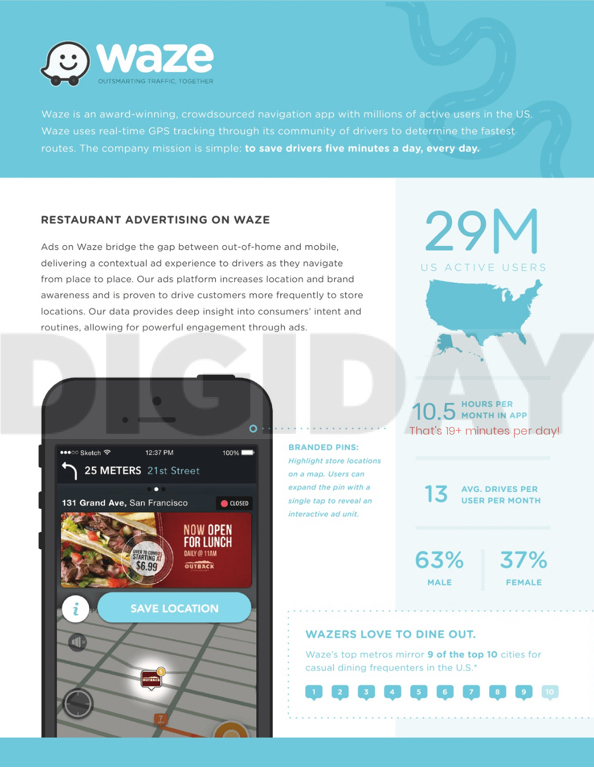
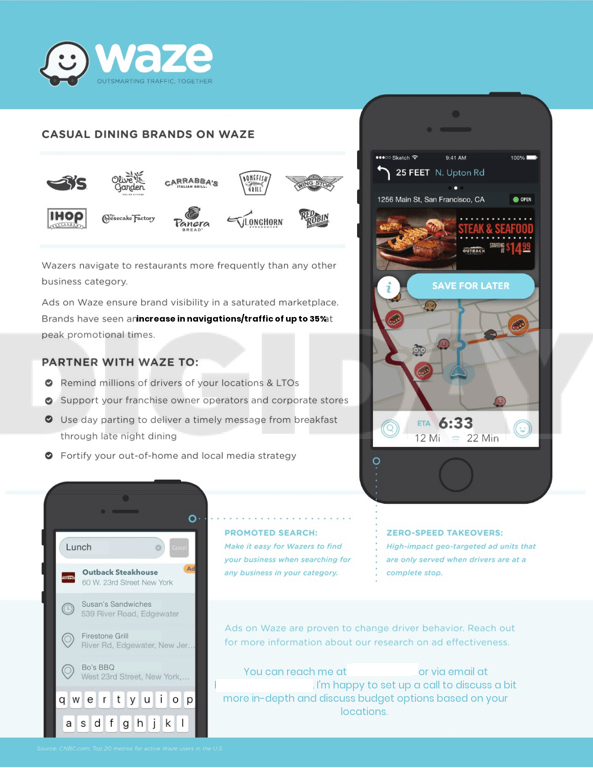
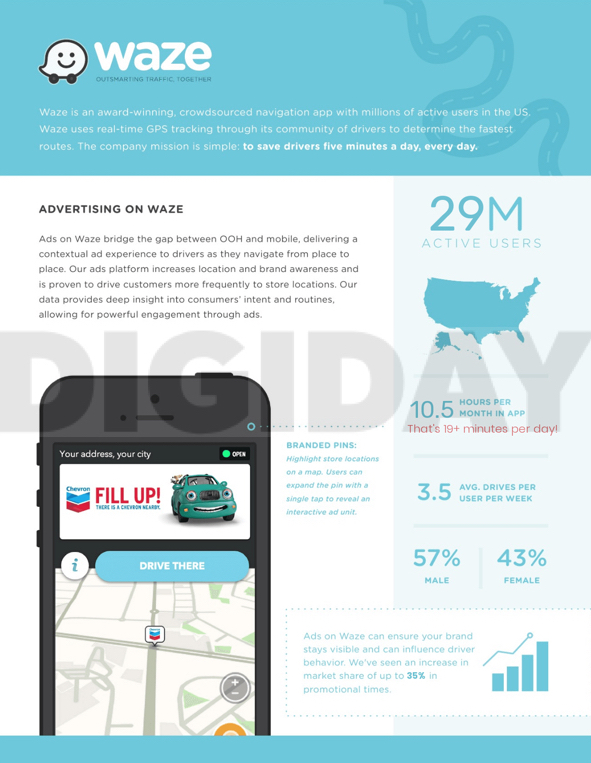
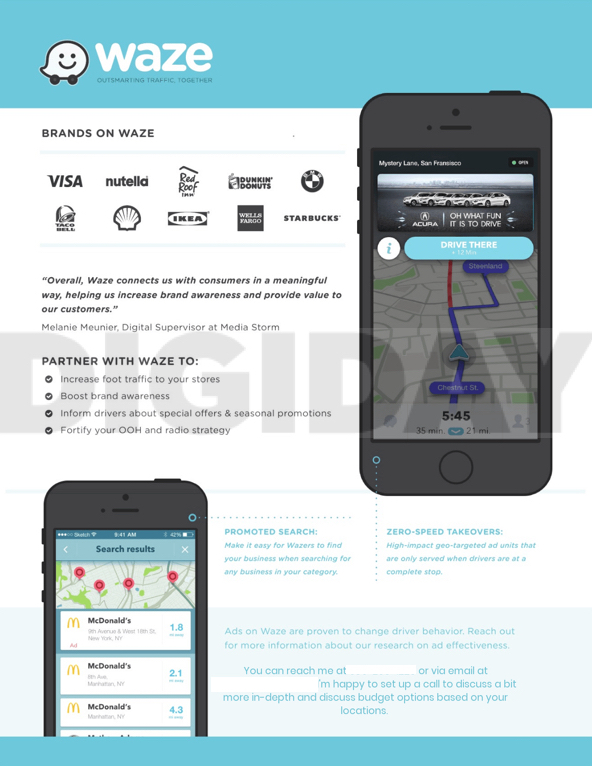
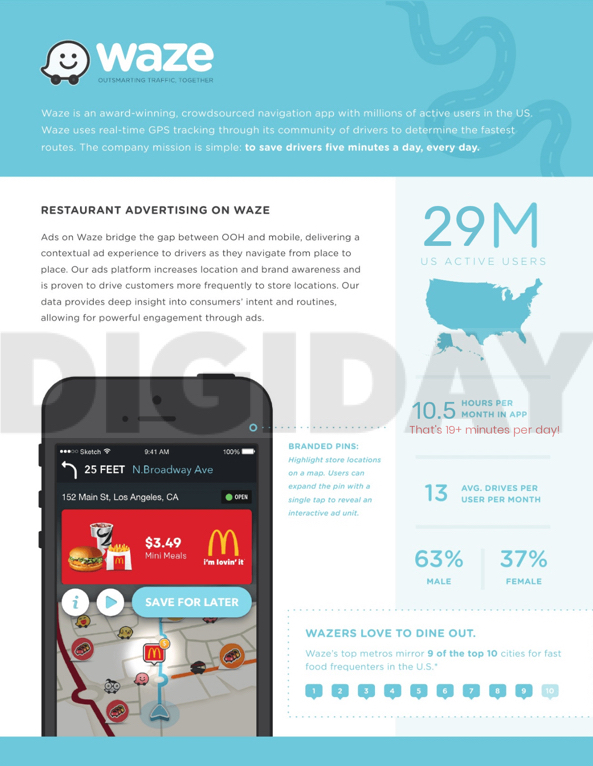
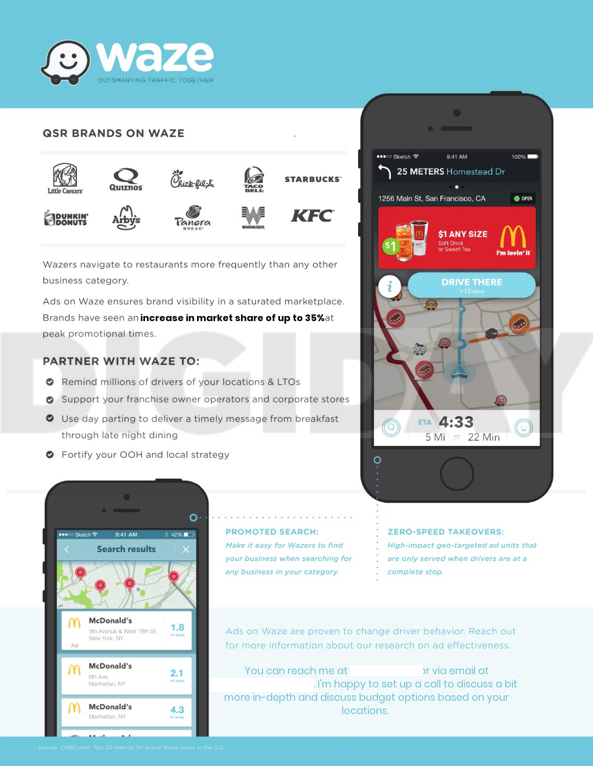
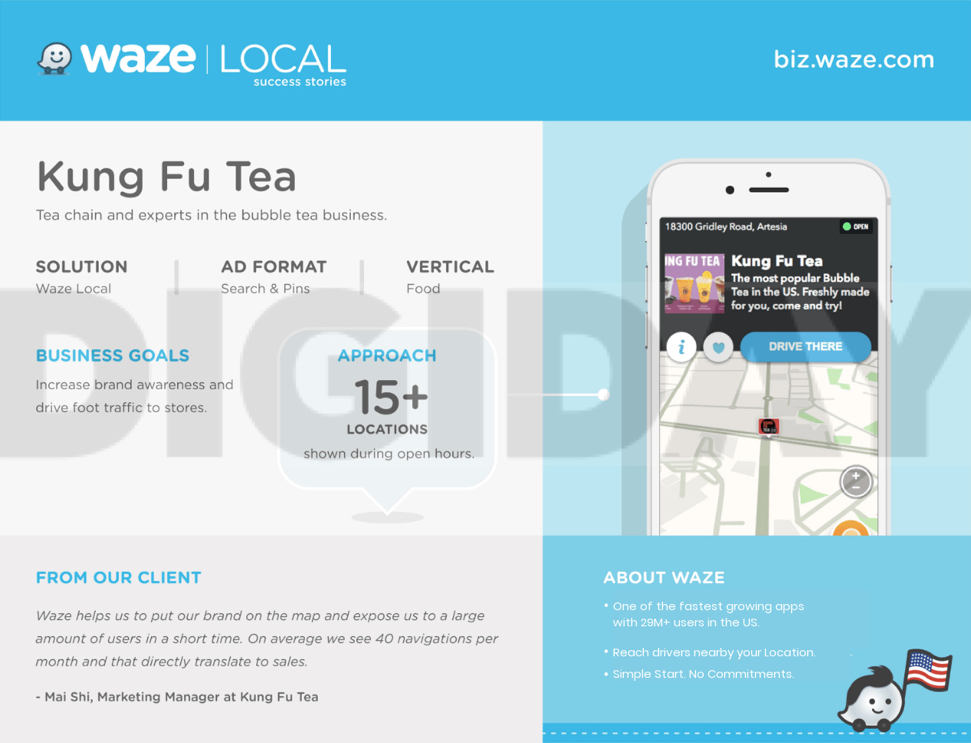
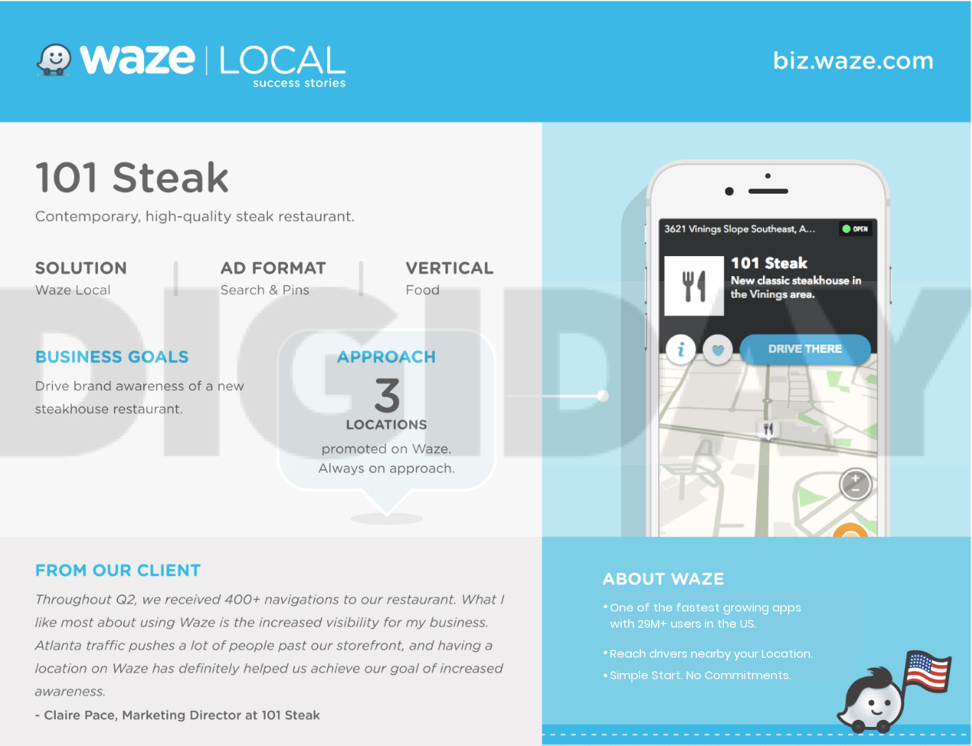
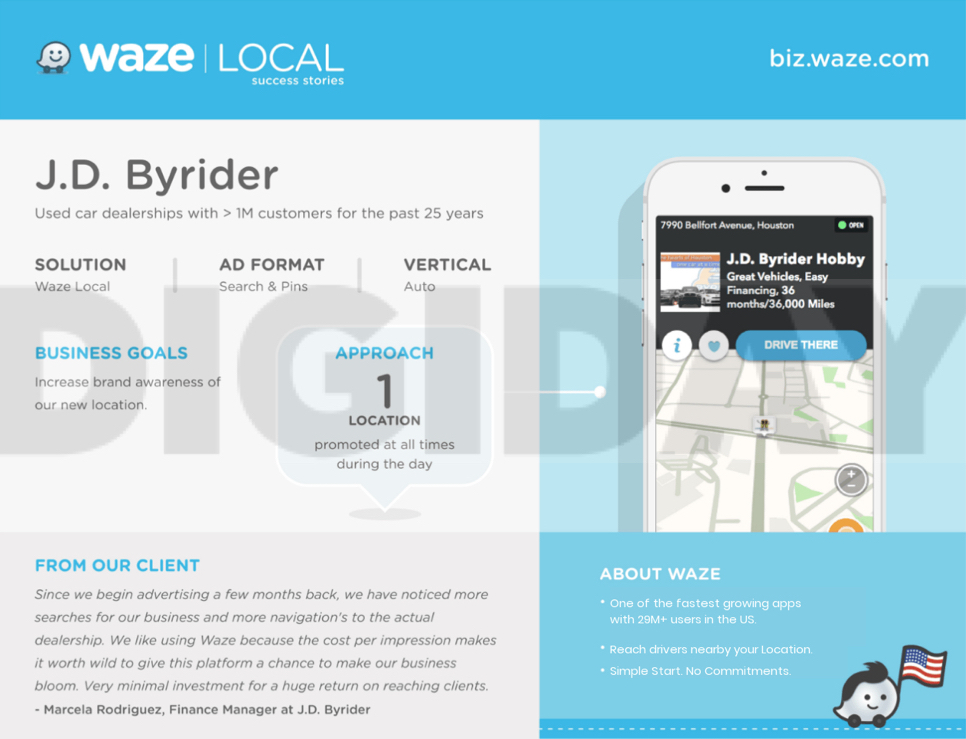
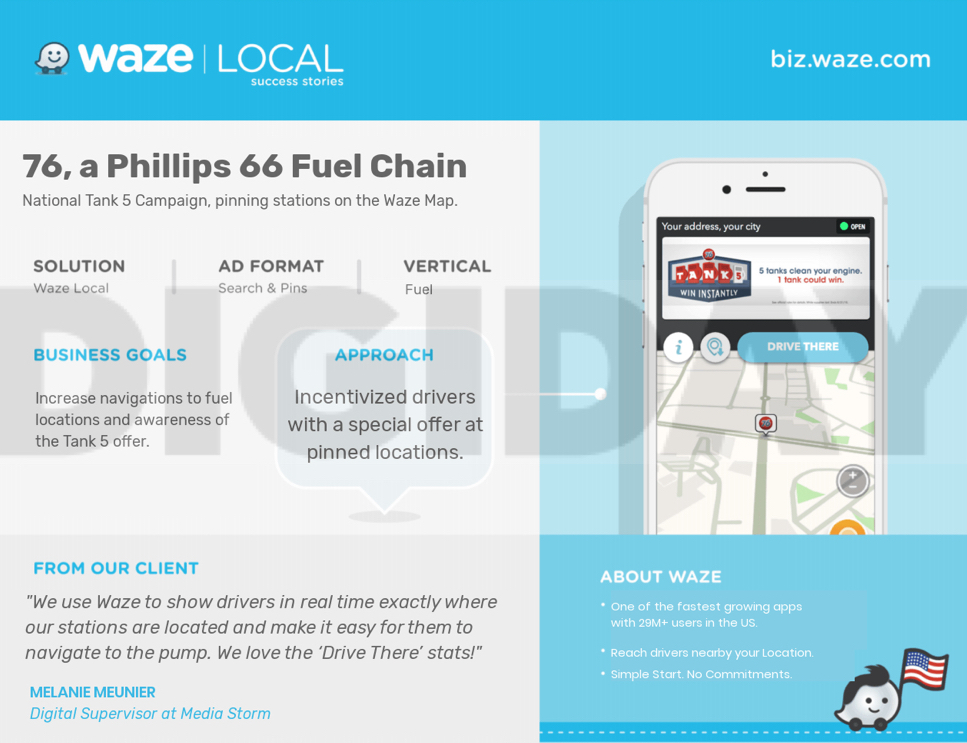
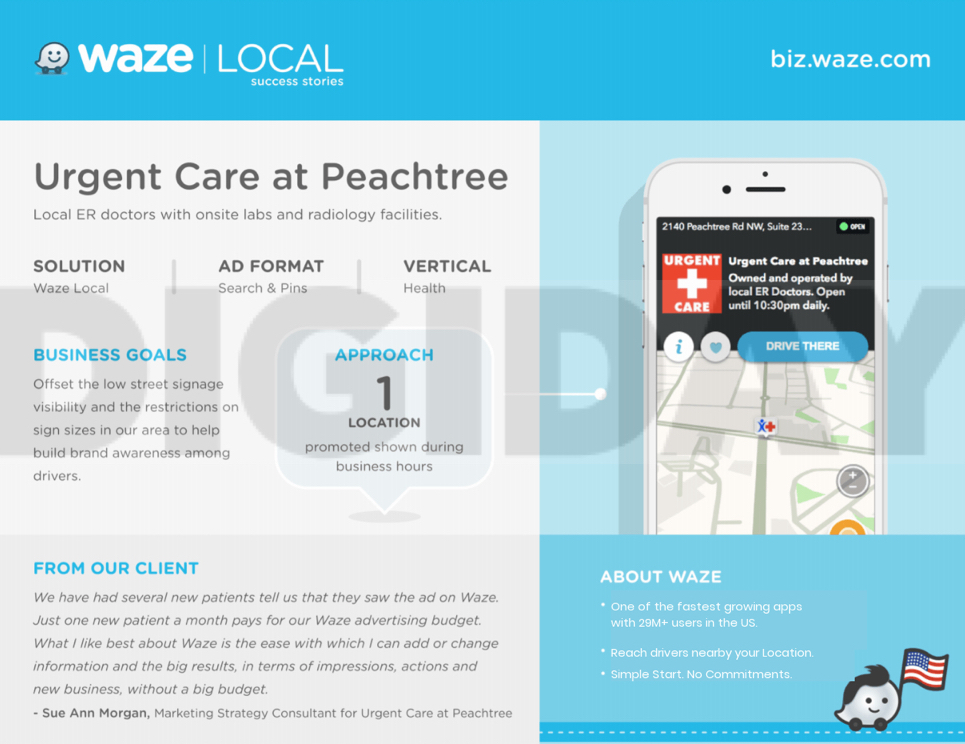
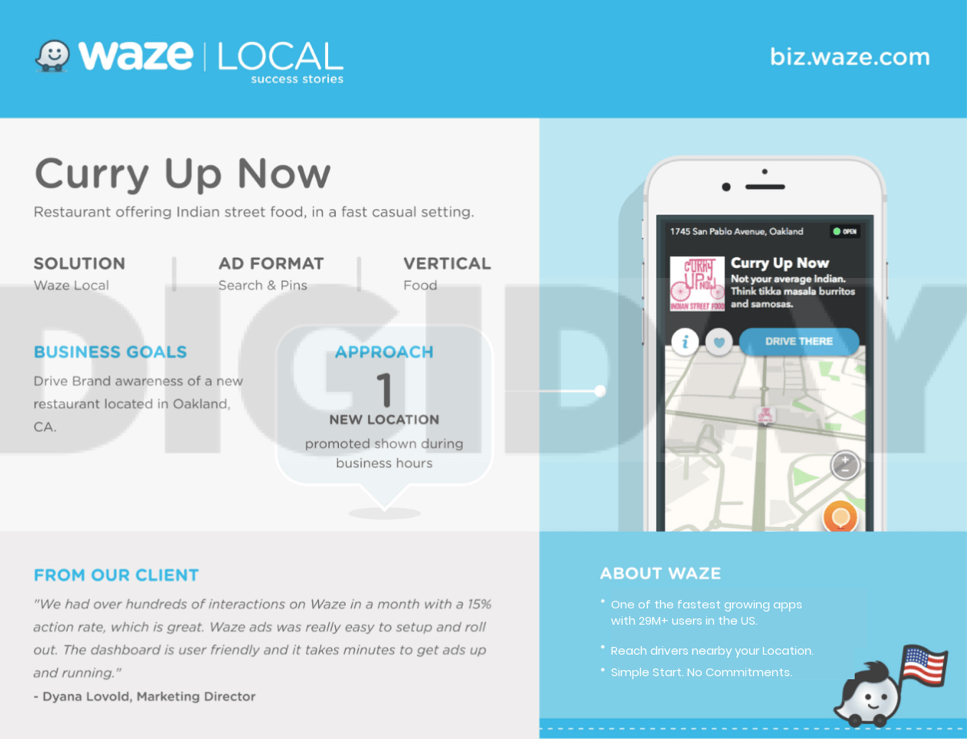
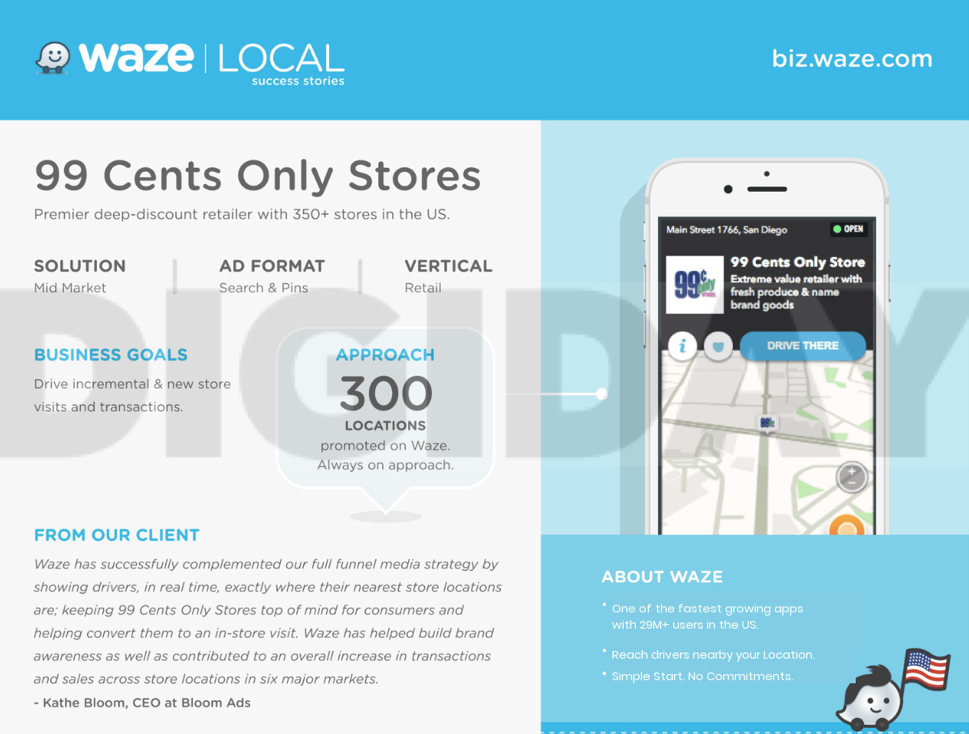
More in Marketing

As it ramps up push to fund AI bets, Meta makes a new play for agencies
Even in the age of Advantage+, Meta needs agencies.

Zero-click reality is rewriting the rules of search for brands
Search performance concerns have reached brand boardrooms. Both organic and paid search practitioners are scrambling to find effective responses to the questions posed by AI developments.

Walmart Connect’s full-funnel ambitions come into focus, with Amazon in its sights
Walmart Connect is scaling quickly, with AI investments and the Vizio acquisition shaping its push to rival Amazon’s ad business.






